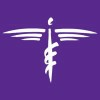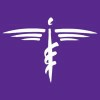What Is an ACL Injury?
The anterior cruciate ligament provides stability for the knee joint. This ligament is commonly injured during sports that involve sudden stops or changes in direction, jumping and landing, such as while landing in a valgus knee position, sudden deceleration with high quadricep activity or an outside cutting motion with internal rotation of the knee paired with anterior tibial shearing forces.
Which Athletes Are the Most at Risk for an ACL Injury?
This ligament is especially susceptible to injury in female athletes who perform jumping, cutting, turning and twisting in their sport. Some higher ACL injury-risk sports are soccer, basketball, volleyball and gymnastics. Risk is based on the amount of bodily contact presented, functional movements requiring quick stop-and-go play and joint positioning. One of the factors that leads to higher injury rates in females is related to strength and control of the body. Unlike our anatomy, this can be influenced through training to decrease ACL injury risk. Research shows that high school and collegiate female athletes have a significantly increased risk of sustaining a noncontact ACL injury compared to male athletes participating in the same sport.
Des Moines University Physical Therapy Clinic in the Recplex Offers Training To Help Prevent ACL Injuries
The sports performance staff at DMU Physical Therapy Clinic in the RecPlex have been trained in Sportsmetrics, the first ACL injury prevention program scientifically proven to decrease the risk of serious knee ligament injuries in athletes. This program was specifically designed to provide neuromuscular retraining along with coordination, balance and strength training to the lower extremities to prepare athletes to avoid or react immediately to an injury situation.
Sportsmetrics training addresses major deficiencies in the athletic population, including reaction force dominance, quadriceps dominance and dominant leg dominance. This training allows athletes to complete a sports injury pre-test to identify potential risk factors and a sports injury post-test to measure form improvements objectively. The DMU sports performance staff and physical therapists at the RecPlex utilize an isokinetic testing device to incorporate a quadricep-to-hamstring work ratio and a dynamic movement screen to identify potential injury risk.
Athletes interested in joining this injury prevention course can register online.
What Does This Injury Prevention Class Look Like?
DMU Physical Therapy Clinic in the RecPlex currently offers classes three days a week for approximately one hour. Classes focus on the following five elements:
- Dynamic Warm-Up: Prepare your body for training with functional activities that use sport-specific motions, raise core body temperature, increase blood flow to the muscles and improve flexibility, balance and coordination.
- Plyometrics (Jump Training): Strengthen muscles with new, diverse plyometric exercises every two weeks that emphasize proper jump mechanics. These reduce the risk of knee injury while increasing jump height.
- Speed and Agility: Learn about proper body alignment and technique through a combination of structured and explosive power drills.
- Strength Training: Incorporate machine weights and/or bodyweight exercises for full-body conditioning and core stability.
- Flexibility: Stretch muscles and achieve maximum length through complete range of motion
Des Moines University Physical Therapy Clinic at the RecPlex has multiple sports performance classes offered this spring and summer. Check out our variety of classes. If you don't see a class that matches your training needs, contact our clinic at 515-271-1725 to see how our sports performance staff can accommodate a class or create one specific to you!




